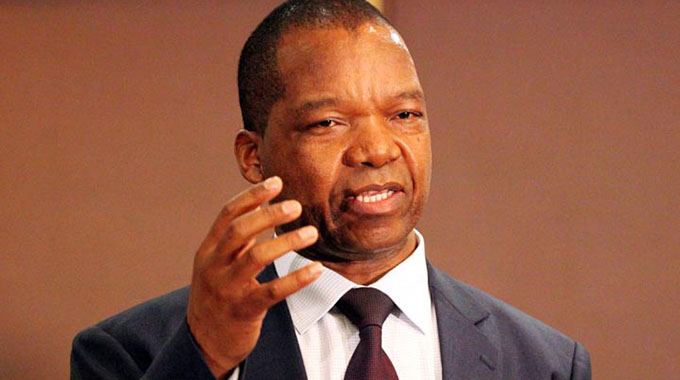Letters of Credit availed for fuel

Tawanda Musarurwa and Michael Tome
The Reserve Bank of Zimbabwe (RBZ) says it has availed adequate Letters of Credit (L Cs) into the market to ensure availability of critical imports such as fuel.
In view of prevailing foreign currency shortages, the majority of companies are currently dependent on L Cs for critical imports such as raw materials and equipment, which are required to keep production going.
And the RBZ has been allocating foreign currency through L Cs to local companies for the settlement of foreign obligations such as the importation of raw materials critical for industrial production.
Central bank governor Dr John Mangudya said the bank’s issuance of the L Cs was aimed at ensuring long-term availability of fuel.
“We have made sure that L Cs will be available to fuel providers and that they will be able to use them to access fuel going forward,” said the RBZ governor yesterday.
The obtainability of L Cs will, in particular, help to ease fuel shortages. Fuel is one of the biggest consumers of foreign currency in the country.
L Cs help reduce the payment risks on international trade transactions. With a letter of credit, a buyer’s bank can guarantee payment to a seller if certain criteria are met.
With regard the L Cs fuel companies including Total Zimbabwe, Engen, Petrotrade, Zuva Petroleum and Puma; which came together in 2017 to establish the Major Oil Companies Industry Forum; adopted the use of L Cs as a way of circumventing foreign currency shortages.
The L Cs are guaranteed by the RBZ that they will pay in future, as such the companies are allowed to pay in RTGS on the transitional account, which is local, and then the RBZ will then pay later for the fuel that would have been delivered and consumed.
Meanwhile, Dr Mangudya said they expect foreign currency shortages to subside going forward as the interbank foreign currency exchange rate should reach equilibrium in the next few months.
Currently the interbank rate is at around 3,3 to the United States dollar, compared to between 4,1 and 4,8 to the US dollar on the illegal forex market.
“Within the next three months we will have convergence of the illegal rate and the interbank market rate,” he said.
Meanwhile, Dr Mangudya implored captains of industry to work more on productivity if the country is to address economic fundamentals critical for economic resuscitation.
Dr Mangudya said the economy is in transition from monetary and fiscal policies put in place by the Government in the last six months (October 2018).
He hinted on the need to create confidence in the economy and to bolster production on all fronts of the economy to curb the runaway import bill, thus providing the much needed foreign currency.
“We need to increase production, which is the fundamental thing to do so that there is adequate supply of goods and services.
“We need to ensure that there is more bread, more cooking oil, more ethanol, anything that we can produce. If we do that, combined with confidence, the economic fundamentals are sorted out,” said Dr Mangudya.
The Governor’s sentiments for productivity come at a time when the country experienced a poor 2018/19 agricultural season induced by El Nino, which has led the private sector to revise the winter wheat tonnage downward to 90 000 owing to depleted dam water levels.
Dr Mangudya lamented the country’s conception by potential investors who have bracketed it as an unviable investment destination.
“ . . . Because of geopolitical and country risk conceptions, we are not one of those countries that people want to invest their foreign currency in.
“It means we have to use the little that we have from outside, exports and diaspora remittances,” he added.
The RBZ governor indicated that the country was working tirelessly to curb fiscal deficit that has subsequently led to a wobbly economy.
“Government is taking measures to address factors including reduction in fiscal deficit, which was translating itself into high money supply. This meant an increase in the demand for goods and foreign currency and that destabilises the economy.”
Dr Mangudya, was last week given another five-year term at the helm of the central bank.










Comments